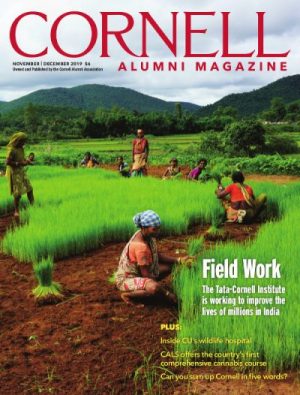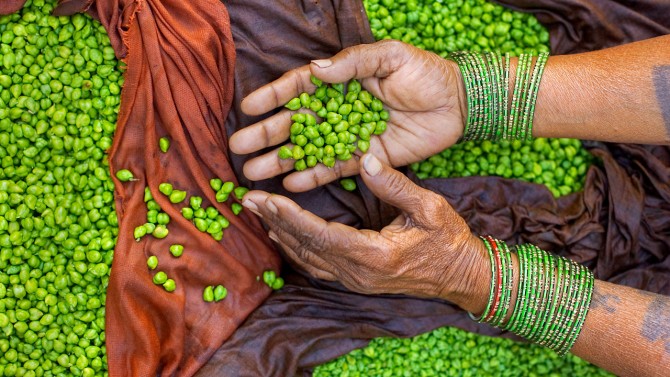Media
2023

Beyond Staple Grains
2022

Seven faculty members elected AAAS fellows
Seven Cornell faculty members have been elected fellows of the American Association for the Advancement of Science (AAAS), the world’s largest general scientific society.
2022
2022
2021

Indian women’s nutrition suffered during COVID-19 lockdown
The 2020 nationwide lockdown India imposed in response to the COVID-19 pandemic caused disruptions that negatively impacted women’s nutrition, according to a new study from the Tata-Cornell Institute for Agriculture and Nutrition.
2020

Cornell Chronicle: COVID-19 Exacerbates Malnutrition in India, Study Finds
In a report published July 17, researchers from the Tata-Cornell Institute for Agriculture and Nutrition (TCI) show that India’s rigorous lockdown has driven up the price of produce, limiting people’s ability to afford a nutritionally diverse diet.
In the study, “Pandemic Prices: Price Shocks from COVID-19 and Their Implications on Nutrition Security in India,” TCI analyzed the average weekly price of cereal grains, vegetables, pulses (the edible seeds of plants in the legume family, such as beans and peas) and eggs in 11 major metropolitan cities across India between March 1 and May 31, comparing them to the 2019 prices and the weeks before the lockdown.
TCI is part of the College of Agriculture and Life Sciences (CALS) and hosted by the Charles H. Dyson School of Applied Economics and Management.

Cornell Chronicle: Zero Hunger in India is Possible with Diverse Food System
With some 200 million people suffering, India has relatively high rates of hunger compared with the rest of the world. However, malnutrition is not uniform throughout the country, and its prevalence corresponds to the uneven levels of economic development between different regions.
According to a new report from the Tata-Cornell Institute for Agriculture and Nutrition (TCI) that published July 15, researchers have mapped opportunities for India to reduce hunger and improve overall nutrition by reorienting its agricultural policies in favor of more nutritious foods.
In “Food, Agriculture, and Nutrition in India 2020: Leveraging Agriculture to Achieve Zero Hunger,” TCI researchers assess India’s progress toward achieving zero hunger by 2030 – a sustainable development goal established by the United Nations General Assembly in 2015.
The new report assesses the prospects for enhancing productivity and increasing farm income across India, and it emphasizes the need for continued investment in agricultural infrastructure.
2019

Cornell Chronicle: $1M Walmart Foundation grant to fund Tata-Cornell ag study
The Tata-Cornell Institute for Agriculture and Nutrition (TCI) has been awarded a $1 million grant from the Walmart Foundation to assess challenges facing small-farm aggregation models in India and Mexico.

Cornell Alumni Magazine: It Takes a Village
Students and faculty at the Tata-Cornell Institute are working to fight malnutrition, poor sanitation, stunted growth, and more—and improve the lives of millions in India.

Cornell Chronicle: For Prabhu Pingali, India’s malnutrition puzzle is personal
It has been a long journey for Prabhu Pingali. After more than 40 years studying agriculture and food systems across the developing world, the faculty director of the Tata-Cornell Institute for Agriculture and Nutrition is now focusing full time on his native India, trying to answer a riddle that has stumped a generation of scholars and policymakers.





